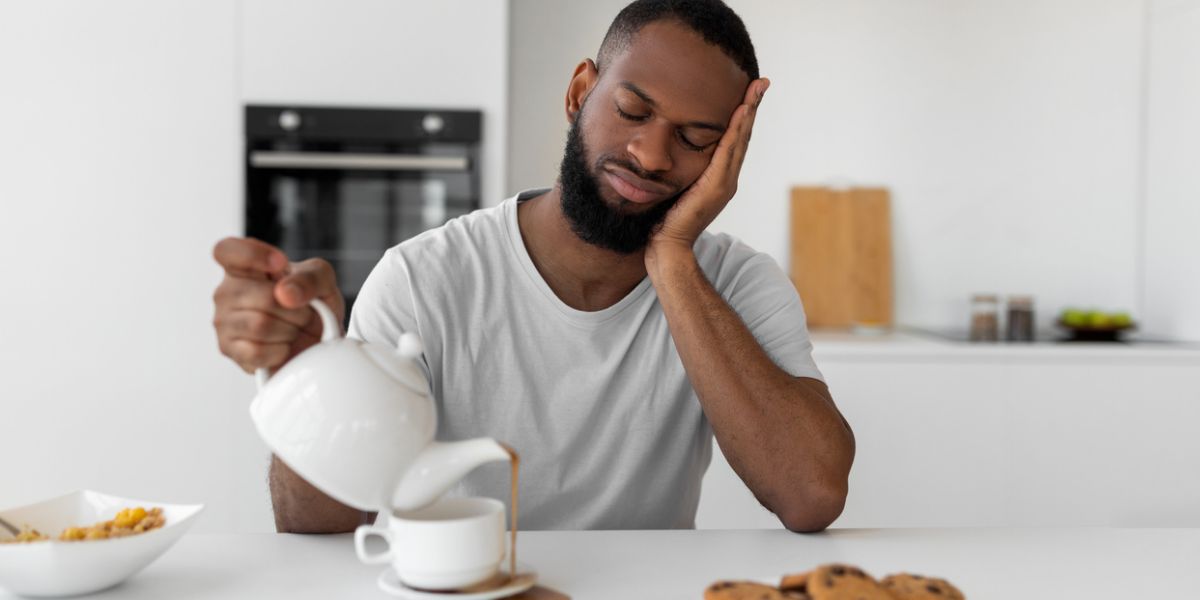Going to bed just one hour later than usual can put you in a bad mood the next day, new evidence has revealed.
A scientific review has found that when people get less sleep than usual they are more likely to feel down about life compared to when they sleep for their usual amount of time.
During the study, the team of researchers reviewed 154 studies on sleep deprivation, which included more than 5,000 participants, spanning from the age of seven to 79.
They found that sleep restriction triggered people to feel less enthusiastic and unhappier about life.
- Cutting sleep by just 90 minutes may increase type 2 diabetes risk in women
- Less than 5 hours’ sleep a night linked to increased depression risk
- Snacking before sleep can lead to weight gain and feeling hungrier the next morning
In addition, those who lost out on sleep were also more at risk of feeling depressed and anxious, the study has reported.
Lead author Dr Jo Bower said: “These results matter because people who feel less positive enjoy things like seeing friends, going to exciting events or watching their favourite television show less, which puts them at greater risk of depression.
“They are typically less motivated to socialise, so are at greater risk of isolation and loneliness.
“In our largely sleep-deprived society, people often stay up late, and we don’t want them to be afraid of doing so, but this analysis suggests less sleep will have an effect on mood.”
As part of the trial, the participants were shown upsetting pictures, including a snake and someone pointing a gun. They were also required to complete stressful tasks, such as mental arithmetic.
The results show that the participants who got less sleep reacted less negatively to the images, insinuating they didn’t care as much.
Dr Bower said: “Evolutionarily, positive emotions like enjoyment are good for helping us form social bonds and learn.
“But when we haven’t had enough sleep, our cognitive function is reduced, so we need to prioritise things like processing threats.
- Microbiome: small changes in sleep patterns linked to harmful gut bacteria
- Sleep quality lowest in people from Asia, study shows
- Chatbots help people make better decisions about exercise, diet and sleep
“That could be why positive emotions are dialled down, because they do not have a short-term benefit.”
Prior research has found that a lack of sleep is associated with chronic health complications, including sleep apnoea, a stroke, high blood pressure, type 2 diabetes, obesity, cardiovascular disease, kidney disease, depression and insomnia.
Read the full study in the journal Psychological Bulletin.




